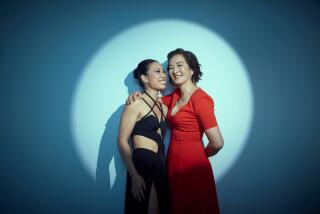Rheea Mukerjee’s ‘The Body Myth’ is filled with questions about our bodies and minds
Whether or not you’re aware of the idea of the mind-body split, the fact is that many of our attitudes in contemporary Western society have arisen from it. From doctors who may tell patients their pain is all in their heads to motivational speakers who attribute everything to willpower and state of mind, the split is clear everywhere. As a PhD student, I’ve seen how academia ignores the body in favor of enriching the mind, and in recent years, there’s been increased attention paid to the ways the modern workplace affects our health. Such concerns about the mind-body split make up the backbone of Rheea Mukherjee’s debut novel, “The Body Myth,” from Unnamed Press.
“The Body Myth” opens with a disclaimer of sorts. It tells us directly that it will be uncomfortable: “Take my story like you would a large pill.” The narrator, Mira, is a recently widowed woman living in the fictional city of Suryam in India, a bustling cosmopolitan locale full of high-rises, office buildings and manicured parks. One day, Mira witnesses a woman having a seizure, or rather, faking a seizure; she runs over to help just as the woman’s husband hurries over too, and so she meets Sara and Rahil, the two people who will change her life completely.
Do we trust what our body is telling us? And how separate is the body from the mind, if at all?
The story is not told completely chronologically. We jump around, discovering parts of Mira’s past as she moves forward into the future, which makes the novel feel like an oral account, the way a friend might share a long tale with you, remembering details along the way, doubling back when necessary to fill you in. There’s nothing confusing about it, though, since Mira as storyteller explains when and how she goes into a tangent. For instance, when she begins to tell readers about her teaching job — she teaches English at the Seven Seeds International school — she also explains her grief:
“You might think it was teaching that saved me from the blunt darkness that comes with the loss of a spouse. It was not. I almost committed suicide, true, but it was Camus, Sartre, Foucault and de Beauvoir who led me back to life. These philosophers who embraced the absurd made my pain feel silly. It made the world seem indulgent and, most of all, purposeless.”
It’s an irony, perhaps, that existentialist thinkers brought Mira back from the brink of despair, but it makes a certain kind of sense too: If you believe that everything is ridiculous, you can tamp down the importance of your own hurt. It’s a kind of mind-body split trick.
Sara, on the other hand, teaches Mira about pain in an extremely different way. Rather than shunting her pain aside, Sara — who has been suffering for years with unexplained seizures, headaches, physical aches, mouth sores, fatigue and anemia, among other symptoms — advocates for herself. She’s been going to doctors for years, trying to figure out what’s wrong with her. Mira believes it’s all in Sara’s head, that she isn’t really sick at all, and yet she’s incredibly drawn to Sara’s powerful weakness. Rahil, Sara’s husband, seems to feel the same way; he needs to be needed, and as Mira joins the duo’s life, it becomes clear that Mira enjoys being needed as well.
If you believe that everything is ridiculous, you can tamp down the importance of your own hurt
The question at the center of the novel, as the title implies, appears to be this: Do we trust what our body is telling us? And how separate is the body from the mind, if at all? For Sara, the answer is murky and depends on who is being asked. She is a mystic of sorts, goes into trances when she listens to music, and believes her soul has been trying to flee her body ever since she was born and that this is why she’s so ill. Mira, on the other hand, believes Sara is faking her illnesses, whether consciously or not, and that she could be well if only she decided to be. Rahil seems unable to ask the question; he deals with what he sees in the moment, and when that is Sara’s suffering, it doesn’t matter what’s causing it as long as he can be there to support her.
But Mira learns more about the body than its pain and suffering. There is a delightfully queer element to this novel as Mira is drawn to Sara both spiritually and physically and the two begin sleeping together. Through the joys of Sara’s body, ill as it might be, Mira begins to emerge from her intellectual cocoon of cynicism and begins to find that she can enjoy simple pleasures once again. Healing, for Mira, occurs within the complex friendship with Sara and Rahil, no matter how untraditional it becomes.
“The Body Myth” is full of questions, about our bodies and minds, about mental illness, about the history of trauma, and about the depths of friendship and love. It doesn’t answer any of these questions definitively, thank goodness, but allows its characters, and its readers, to keep pondering.
::
Rheea Mukherjee
Unnamed Press, 234 pp., $16.99
Masad is a writer, book critic and PhD candidate at the University of Nebraska-Lincoln.
More to Read
Sign up for our Book Club newsletter
Get the latest news, events and more from the Los Angeles Times Book Club, and help us get L.A. reading and talking.
You may occasionally receive promotional content from the Los Angeles Times.






